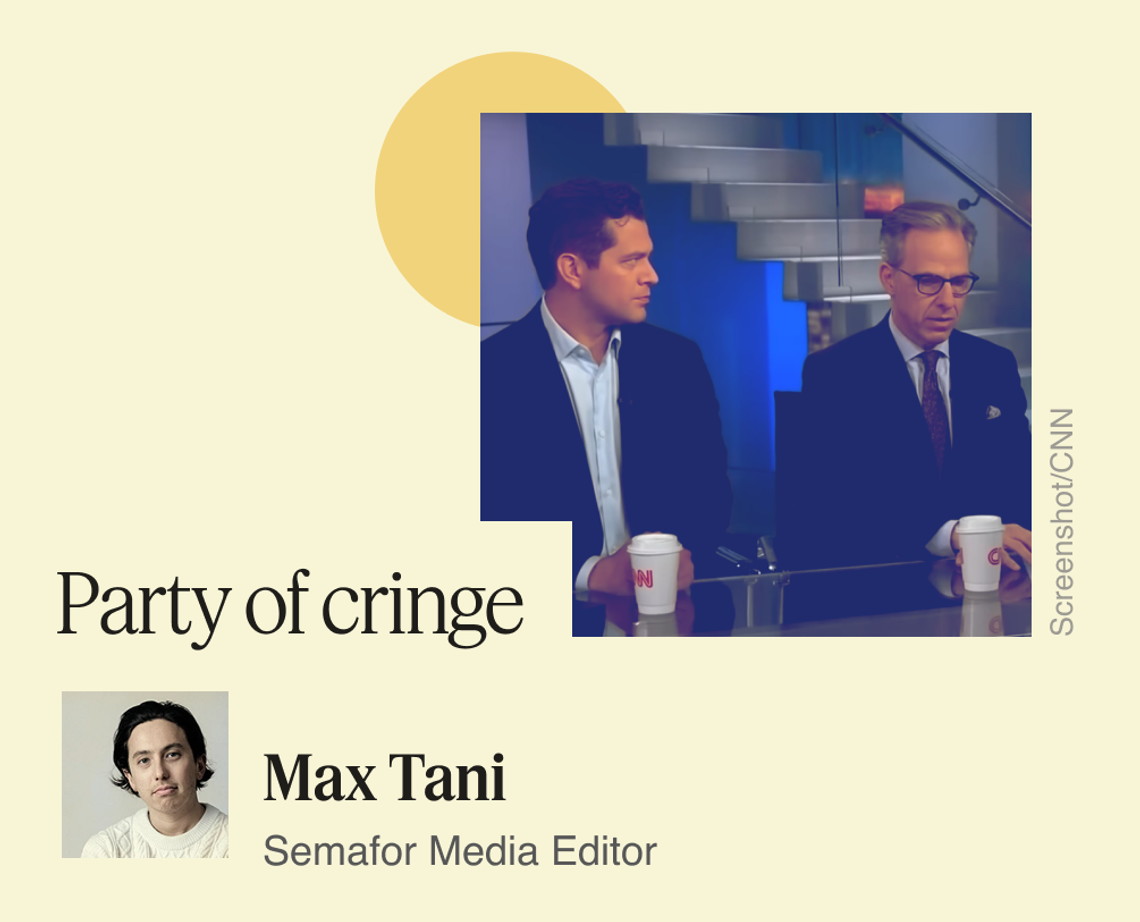 The so-called liberal media isn’t doing Democrats a lot of favors these days. Six months after losing to Donald Trump for the second time, the Democratic Party’s shortcomings remain the biggest story in Washington. Revelations from the new Biden book by Jake Tapper and Alex Thompson have prompted weeks of relitigation of the 2024 race. The duo have been on a book tour in which Tapper has gone beyond his reporting to act as a media critic himself, suggesting at one point that the kind of criticism he has received from the party is an indication of why it lost. This week, The New York Times, too, said it would begin publishing a series of deep examinations on the Democratic Party’s defeat, beginning by revealing a $20 million dollar effort with the cringey codename SAM — “Speaking with American Men: A Strategic Plan.” Meanwhile, Biden allies’ attempts to counter Original Sin have only juiced news articles and interest in the book, which is on its way to being one of the best-selling political nonfiction books in years. And even in lefty online spaces, it’s grim for Democrats: In Washington this week, I spoke with a few congressional staffers who said that they had tried using Bluesky as an alternative to Twitter after Twitter was purchased by Elon Musk, but they gave up after their bosses kept getting yelled at by Democratic users angry at their impotence. For the moment, Democrats and the media outlets they pay attention to seem most intent on making the party relive its most painful mistakes. Also today: Lingering strife on the Washington Post editorial board, Bloomberg backtracks on DEI, and the latest in Vanity Fair’s editor search. (Scoop count: 4) |